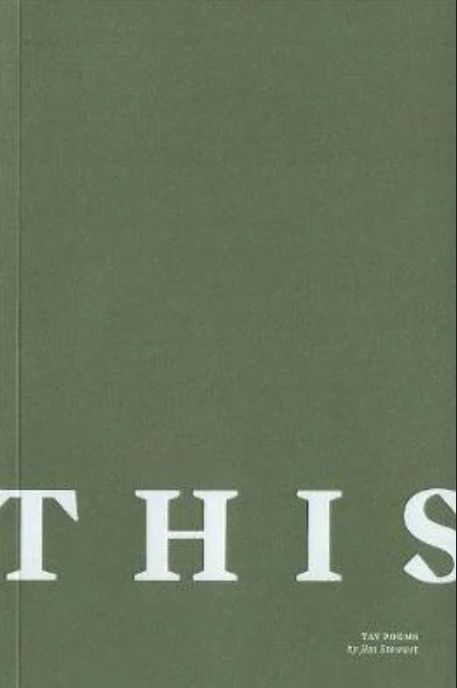Essaying across Hemispheres
On a summer’s day in June, we were treated to a reading by the visiting New Zealand writer, Lynley Edmeades, who also edits Landfall. The morning session (recorded) included a conversation between Kirsty Gunn, Graeme Morton and Edmeades about links between New Zealand and Scotland, and a discussion about writing and the literary life; Edmeades also read an essay from her new book. Edited recordings of the discussion can be viewed on the ‘Conversations’ folder of this website. The afternoon (unrecorded) eased into an informal discussion, chaired by Gail Low, about editing and publishing, and the role of little magazines in fostering a literary culture. Bridging the two sessions was a workshop, ‘Essaying across Hemispheres—Bringing North and South together... Dundee to Otago and Back Again’. This was an invitation to creatively respond to the themes of the day. Exploring ‘palimpsest thinking’, as though laying one hemisphere on top of another, so features of both might show on the same page, we used poems by Edmeades, ‘Faute de Mieux’ from As the Verb Tenses, and ‘Shore’ from the late Dundee poet, Jim Stewart, from This. We asked participants to imagine their way into liminal spaces, to explore a somewhere with a sense of in-betweeness… a ‘here’ and a ‘there’. Then using the words of these two poems as inspiration, our workshop writers brought together different texts and words together, interleaving one with another, mark makings as it were to use writing as an opening and gateway to thinking.
We are grateful to Edmeades and Otago University Press, the estate of Jim Stewart and The Voyage Out Press, for permission to publish both poems.
Faute de Mieux
I
It’s early autumn, and on the coast
the currency is feijoas. Small bags
of the ovalesque green fruit are sold
from an honesty box on the street,
or pinched from the neighbour’s back yard,
their empty holiday home.
A friend stops by, on his roaming way
from on temporary location to another.
His station wagon has the usual collection
of nomadic acquisitions —
surfboard, jandals, a tinny or two,
a few bottles of local wine, picked up
on some recent leg, from a wine-making friend.
Today he’s bought scones from Waihi,
I make a pot of coffee, and wind out
the green and white striped awning
on the deck of my parents’ bach. I’ve got no butter
so we eat scones with feijoas.
We talk about plans for the future,
where the surf is good, where the last party
happened, who was there. He’s heading north
he tells me. There’s a job up there
somewhere, and he’s got a gig taking shots
of surf spots and posting them online.
Afterwards, we head out for a walk, past
curtain-drawn holiday homes, their pregnant fruit trees.
Small outhouses sit alone on vast littoral lawns,
waiting for next summer’s influx of caravans,
campervans, tents. The beach lies in front
of big houses; their boats have been put away.
He’s got a joint rolled. We’re walking the way
people do on half-soft sand. I point to the end
of the bay an explain there’s a marae
just around that bend; there've been some land rights
issues. We graze on that subject for a few minutes
before moving on, like cows to new paddock,
to the silence of smoking, taking puffs of something
he’s picked up on his travels. He mentions Walden,
asks if I’ve read it. No, but now I know
I don’t need to explain why I’m walled up here,
in this holiday spot while there’s no one on holiday,
except myself. There’s talk of a swim.
We walk to the end of the beach and back,
the distance between un fluctuating as we navigate
the incoming waves upon today’s sandy slope.
Every now and then, a lick of the Pacific tickles
the soles of our feet, and we side-step towards the dunes.
I’m in awe of the water’s unceasing assertion.
You can keep the scones, he says, so I offer him
more illegitimate feijoas. Keep in touch, I say,
as he bounces across the warm tarmac
to his grey wagon, in bare feet. Will do,
as he drives away, he’s got his hand
out of the window and I’m standing on the road, waving.
II
There must be a word for that, a friend
said to me recently. We were talking about words,
a dictionary open in her sun-bleached hands.
For what? I asked. For that feeling we get
when we feel so inflated by friendship
we doubt that language can say it.
Lynley Edmeades
Shore
I
This shore is where the water and the land
compose their strip of shifting compromise.
Dunes grow semi-stable; and their sand
faces down the tides’ untiring tries
to force a shapelessness upon each grain
and stop it ever rounding where it lies.
Marram grass’s roots defy that rain
of breakers pouring down and help immure
in density the form they stand to gain,
bedded and compacted, to secure
something’s retrieval from a grudging sea,
even something permanent and sure.
II
The secret water hides its storied source.
And so the seabirds eye the weed
it squanders, and harass the worried
crabs that scutter into range of need.
The current, always truculent and blind,
dragged by the moon, its longings feed
on sunken definitions, uninclined
to let emerge whatever doesn’t flow
in strict assimilation to its mind,
dissolving by immersion. So
no edge survives or any sharpness not
blunted by its determined undertow.
Jim Stewart
Here is a sample of writing from that workshop…
proximal and distal
It’s early Autumn here,
Spring in other territories,
and I can taste those feijoas.
Those odalisque green fruit,
sometimes sweet, sometimes sour,
while mentally packing all
that I’ll need for the journey, out:
jandals, perhaps a tinny or two…
Rather than feel immured
by this peculiar density of sand and sea,
by this imbrication of unstable images,
their forms offer escape, offer pleasure
offer movement between here and now,
between what is known and what is not.
In front of the big houses,
boats have already been put away
and you and I and we walk
half-soft sand pondering
what it is we share;
what secrets the water hides,
and the stories it betrays.
Scuttling crabs across silent seas
flash-up their brilliance before dissolving…
imagination and memory.
William Hume
Sands of Change
Years ago, I developed a theory that the world was becoming homogenised, as if each of us were grains of dune sand being worn down to shapelessness by tide and wind. Global Economy was the flavour of the day, and while the foreseen loss of individuality wrenched, it seemed the potential benefits could redeem us.
The world would be a fairer place where people’s interior landscapes were of more value than any carapace in which they were born, speaking in words they each could comprehend, in a common, properly mongrel language. Where arguments through misunderstandings were swept away on this everchanging shoreline of the future. Where people were stewards of the world, no longer parasites burrowing into the skin of the earth.
Somewhere along the way, however, society’s shifting sands, dragged by the natural tides of political, or convenient, dogma sucked away to sunken sloughs, quicksands, burping up nationalism and populism with geyser-like force.
The slogan ‘divide and conquer’ is murmured in clubs and on private jets, the mantra of the people with serious money—our current enslavers. Like gulls having roosted on every awning of every bach and caravan, preparing to dive on us granules turned crabs, skittering into range through need. They’ve changed the trajectory, keep us guessing, sometimes blaming and othering, when what we need are the inflatable jackets of friendship.
Rhoda Neville
Pacific at my soles
Marram grass, jagged on the body, itchy against limbs, now stabs at memories, like shifting sands, and shorelines that dunes can no longer protect against. Baches stand bare across corridors in distant space. No children on beaches. No butter for scones. No permanent residents. Curtains drawn until next season’s arrivals.
People flock like migrating birds searching for perfect climes in which to feed, breed, survive. Others flee, seeking the familiar on foreign shores, digging holes, scaring off crabs, scanning southwards, aware always of the north.
Fending off materialism and modernity, my friend hunts solitude, a Walden-like existence, freedom from burdens, living wild, drawing on joints, scavenging wine, sharing tales over coffee, fully aware that Thoreau was never far from home.
Secret water hides its storied source
like a cabin in the woods, uninclined
to welcome visitors, to let emerge
whatever doesn’t flow.
Exotic fruits – feijoas – moisten the dry baked crumbs of permanence as he scuttles off in his station wagon, says goodbye with a solitary wave from the driver’s open window and I am left measuring my own lone existence.
I glance skywards wondering if seabirds on long-distance flights dare to look down while in motion, eyeing creatures that scutter into range of need as every now and then the Pacific licks at my soles.
Loretta Mulholland



